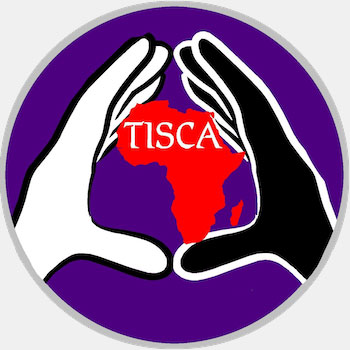We use cookies on this site to enhance your experience.
By selecting “Accept” and continuing to use this website, you consent to the use of cookies.

Jan. 30, 2015
By: Jeff Grischow
My phone rang at 3 a.m. on a January morning in 2008. ‘I’m in the hospital,’ said a familiar voice, ‘I’ve had an accident.’ It was Kwesi, a friend from Ghana who worked as a carpenter at a government-run training centre. For the next hour, I listened as Kwesi shared his story.
On Jan. 13, Kwesi left home on his motorcycle to check on a maintenance job at his worksite. On the outskirts of town an oncoming bus swerved into his path, tore into his left leg, and knocked him down. An ambulance took Kwesi to the nearest public hospital where a surgeon decided to amputate his leg below the knee. As we talked on the phone that January morning, he already had two clear goals: to obtain a settlement for his injury, and to reintegrate into his job at the training centre. Over the next four years, Kwesi embarked on a quest to claim his rights as a newly disabled Ghanaian. It was not easy, and it depended on a combination of personal determination, chance encounters and help from people who championed his cause.
Kwesi’s journey began with his discharge from the hospital on Feb. 10, 2008. To be released, the hospital demanded that he pay the full bill of 900 cedis (equivalent to USD$900, or four months’ net earnings). Otherwise he would be left the condemned ward without food or water. Faced with this prospect, I helped him to pay the bill and he returned home. For the first four months Kwesi relied on crutches, which made it impossible for him to return to work fully because his job required heavy lifting and roofing. Yet his supervisor insisted he return to work and threatened to fire him if he didn’t.
Kwesi needed his job, so he hired a trainee to do the harder physical work. This ate up half of Kwesi’s take-home pay, but at least it prevented him from being sacked. After June, 2008, Kwesi was able to move more freely with a prosthetic leg supplied by an American NGO called Standing with Hope. But he still struggled with some tasks and continued to employ the trainee at his own expense. Several years later a new manager (the third since the accident) took up Kwesi’s cause and encouraged him to apply to the position of Head Artisan, which would allow him to supervise contractors rather than perform heavy work himself. Kwesi accepted the offer and holds this position as of today.
While he recovered, Kwesi pursued a claim against the bus driver’s insurance company, the State Insurance Corporation (SIC). For this to happen the driver had to be convicted of dangerous driving, which happened after Kwesi built his case using a paralegal (who charged 500 cedis), and obtaining a police report (for which the police officer demaned 300 cedis). Along with the conviction, Kwesi also had to submit a medical report to SIC assessing the extent of the injury, which the doctor provided for a ‘fee’ of 200 cedis. As Kwesi said, ‘you give them some bribe, to just make things quick for you.’
Kwesi’s claim sat with SIC for three years, despite repeated meetings with claims officers. Finally, the claim only succeeded, but only after a chance encounter with a friend’s brother – who worked at SIC and overheard one of Kwesi’s frustrating conversations – referred Kwesi to a lawyer. In 2011, with the lawyer’s help, Kwesi finally received his settlement – 15,000 cedis less a 10% lawyers’ fee. Kwesi has invested some of the settlement in two plots of land, on which he hopes to build a house large enough for his family and several rented rooms. This could not be done for 13,500 cedis, but Kwesi is still trying to fund the project through his earnings at work.
Kwesi’s story sheds much light on disability rights in countries like Ghana. In 2008, the Government of Ghana passed a Disability Act based loosely on the United Nations Convention on the Rights of Persons with Disabilities (CRPD). On paper the Act mandates economic reintegration and affordable healthcare for disabled Ghanaians. The CRPD goes further, providing for equal access to justice and a reasonable standard of living. Many scholars believe that legal instruments in themselves will produce disability rights. But Kwesi’s case shows that chance encounters with powerful patrons might be more significant. And not only in Ghana or the developing world. The American disability activist Marta Russell shows that this can be true in the West as well. For me, Kwesi’s story indicates that, despite the existence of disability rights on paper, disabled individuals in non-Western societies will face significant challenges in claiming those rights in practice. Their stories need to be heard.
You can read more about Kwesi’s story in my article, “’I nearly lost my work’: chance encounters, legal empowerment and the struggle for disability rights in Ghana,” Disability & Society, 30(1)(2015).